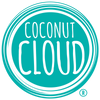The Role Fats Play in Your Brain Health

Fat, once thought of as an ugly word, is something you wouldn't dare associate with a healthy diet. Remember all the “fat-free” products we used to load up in our grocery carts to arm ourselves against the war on weight gain? Well, here’s a little secret... just because you dress up a bag or box of processed food and call it “low-fat” doesn’t necessarily make it healthy. According to a nutritionist and Clean Plates founder, Jared Koch, “Most low-fat or fat-free foods will have sugar and chemicals to make up for the loss in taste, which renders them poor nutritional choices.”
Here’s what we want you to know...fat is good for you! In fact, our brains are composed of 60% fat. So, it should be no surprise that healthy dietary fat is a rich source of energy for the cells in our brains. The U.S. Department of Agriculture’s 2015-2020 Dietary Guidelines does not encourage a low-fat diet. In fact, it’s healthy eating style examples contain up to 35% of total calories from fat per day.
But when it comes to your noggin, not all fats are created equal. Choosing the right kind of fats helps increase satiety, maximizes your metabolism, enhances the speed of nutrients through your body and protects against heart disease. So, what is considered good fat and bad fat? Let’s break it down:
- “Good” Unsaturated Fat – Monounsaturated and polyunsaturated fats are fluid or in liquid form. These fats lower disease risk. Foods high in healthy fats include vegetable oils (such as olive, canola, sunflower, soy and corn), nuts, seeds, and fish.
- “Bad” Fats (Trans Fats) – These fats (in a solid form) increase disease risk, even when consumed in small quantities, and include foods that typically are processed with trans-fat from partially hydrogenated oil.
- Saturated Fats – These fats are not as harmful as trans fats, by comparison to unsaturated fats, but are best consumed in moderation. Foods containing large amounts of saturated fat include red meat, butter, cheese and ice cream.
Too much saturated fat can be harmful because it raises “bad” LDL cholesterol levels. This is where coconut oil as a saturated fat gets an unfair bad rap. Well, we’re here to set the record straight! What’s so interesting about coconut oil is that even though it’s a saturated fat, it actually gives you a “GOOD” HDL cholesterol boost. It also contains medium-chain triglycerides (MCTs) which are directly converted to energy, NOT fat, by your body.
Now that you’re in the know on the ‘good stuff’ in coconut oil, we have also created a high-quality fats cheat sheet below to make it easier for you!
Healthiest Fats
- Olive oil (virgin)
- Hemp Oil (unrefined)
- Coconut Oil (unrefined)
- Almond Oil
- Macadamia Oil
- Pecan Oil
- Hazelnut Oil
- Avocado Oil
- Flax (unrefined/cold pressed)
- Olives (green or black)
- Avocados
Fats Better for Cooking
- Coconut Oil
- Grass Fed Butter
- Macadamia Oil
- Almond Oil
- Pecan Oil
- Hazelnut Oil
- Avocado Oil (unrefined/raw)
- Tea Seed Oil
- Rice Oil/Rice Bran Oil
Healthy fats are important for nervous system function, good brain health, metabolism, digestion, and heart health. Knowing which sources are best is key to choosing the right fats. Plant-based fat sources are an excellent choice to get the vitamins, minerals and other nutrients that your body craves.
If you are looking for healthier alternatives check out Coconut Cloud products, which are 100% dairy free, non-GMO and Gluten Free. These products are minimally processed and contain the healthy, plant-based fats from coconuts, so think INSTANT brain-fuel. Plus, we have great recipes and a portable coconut oil. Visit our website to learn more. We are continuously creating healthy plant based products for today's health conscious consumer.







